There are many misconceptions about the Amish, leading to misunderstandings about their way of life. From their use of technology to their holiday celebrations, the Amish are often stereotyped in ways that don’t reflect their true practices. Here, we will explore and debunk the 15 most common misconceptions about the Amish community.
Amish People Don’t Use Any Technology

One of the biggest misconceptions is that the Amish completely shun all technology. While it is true they avoid many modern conveniences, it varies by community. Some Amish use battery-powered tools, solar panels, and even phones for business purposes. The decision to use or avoid certain technologies is based on whether they believe it will negatively impact their community or values. For instance, some communities allow electric generators, while others may permit the use of computers strictly for business.
All Amish Are Farmers

While many Amish do farm, it is not universal. The Amish engage in various trades, including carpentry, furniture making, and construction. Many run small businesses and work in factories as well. In fact, as land prices increase and farming becomes less viable, more Amish have turned to entrepreneurial ventures. According to a study by Elizabethtown College, over half of Amish income now comes from non-farming sources.
Amish Don’t Pay Taxes

Amish individuals and businesses pay property, income, sales, and other taxes like everyone else. The misconception comes from their exemption from Social Security taxes due to their belief in taking care of their own elderly and infirm. This exemption is granted under the condition that the Amish community collectively agrees to waive all Social Security benefits. Thus, they manage their own pension and insurance systems without reliance on government support.
Amish Are Uneducated
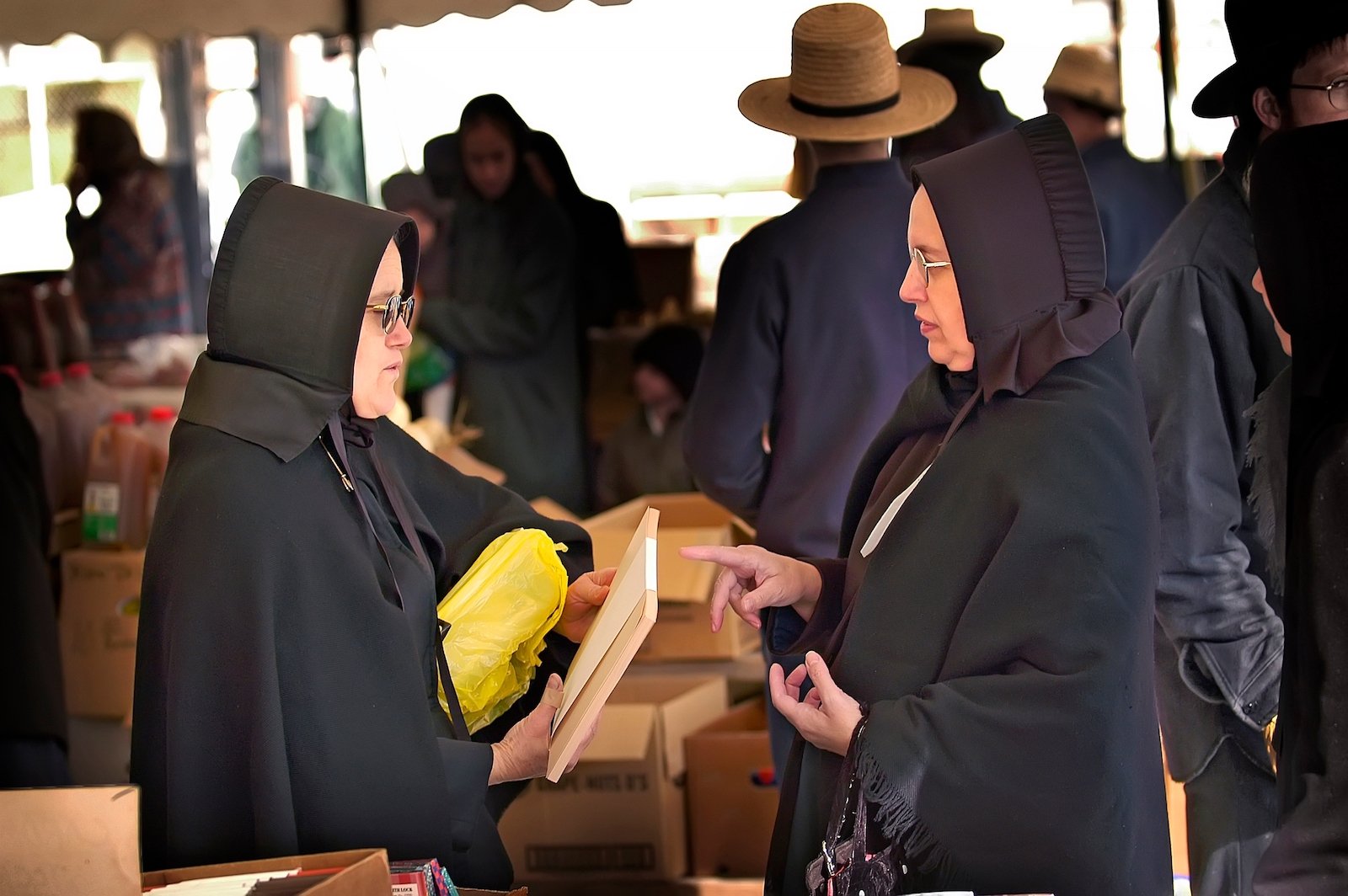
The Amish value education but limited formal schooling to the eighth grade. They believe practical skills and hands-on experience are more valuable. Their schooling system focuses on basic education and vocational skills, often resulting in highly skilled tradespeople. Despite limited formal education, Amish children receive thorough training in trades, agriculture, and household management, making them adept at various practical tasks essential for their community’s self-sufficiency.
Amish Don’t Vote or Participate in Politics

While many Amish avoid political involvement, some do vote, especially on local issues that directly affect their community. Their participation varies widely depending on individual beliefs and community norms. For example, during elections that have significant local impact, such as school board decisions or zoning laws, Amish voter turnout can be quite high. They tend to avoid national politics but are more engaged in matters that affect their day-to-day lives.
All Amish Are the Same
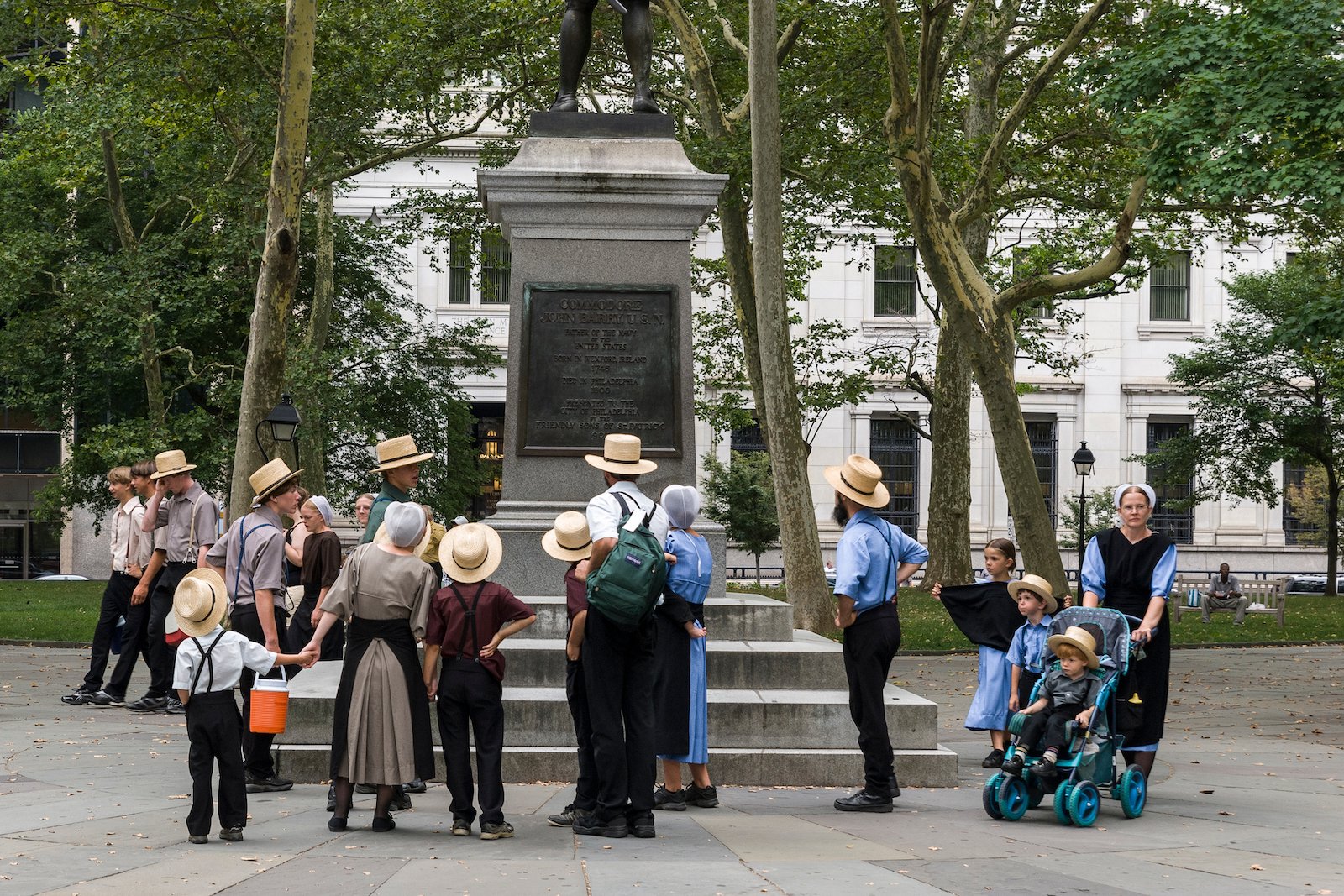
There are significant differences between Amish communities. Practices and acceptance of technology can vary greatly between groups like the Old Order, New Order, and Beachy Amish. Each group has its own set of rules and lifestyle choices. Old Order Amish are typically the most conservative, avoiding almost all modern technology, while New Order Amish may allow more flexibility in their lifestyle. The Beachy Amish, for example, often use cars and electricity, and some even attend college.
Amish Have No Contact with Outsiders

The Amish interact with non-Amish (or “English”) regularly. They do business, shop, and sometimes even work alongside them. They are not as isolated as people often believe. Many Amish-owned businesses cater to non-Amish customers, and Amish craftsmen are known for their high-quality furniture and construction services. They also hire non-Amish for transportation and other services that require the use of technology they avoid.
Amish Women Have No Rights
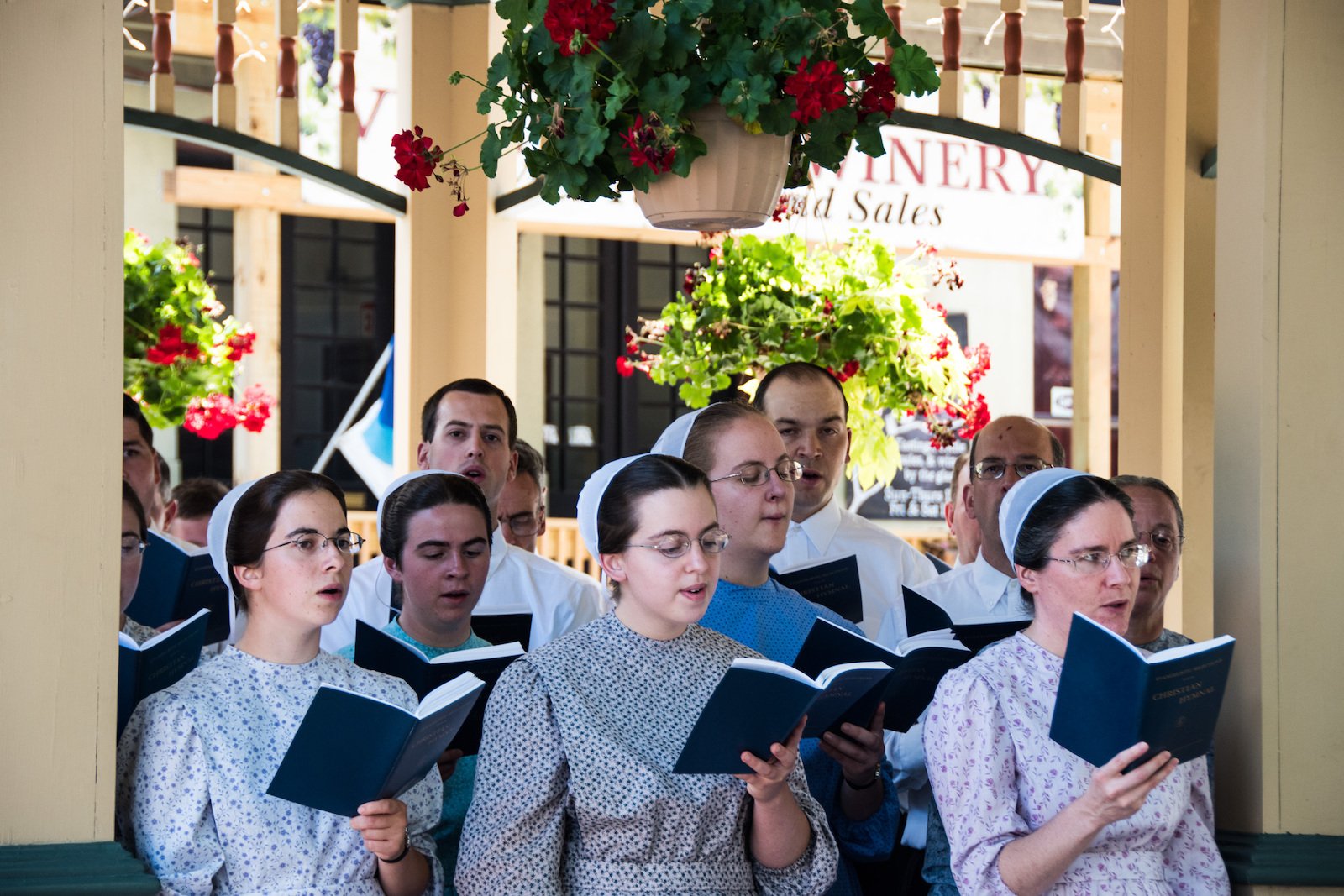
Amish women play a significant role in the household and community. While their roles are traditional, they have considerable influence in decision-making within their families and businesses. They also vote on church matters and can own businesses. In many Amish communities, women manage finances, operate family businesses, and are involved in agricultural decisions. Their contributions are crucial to the community’s economic and social structure.
Amish Don’t Wear Modern Clothes
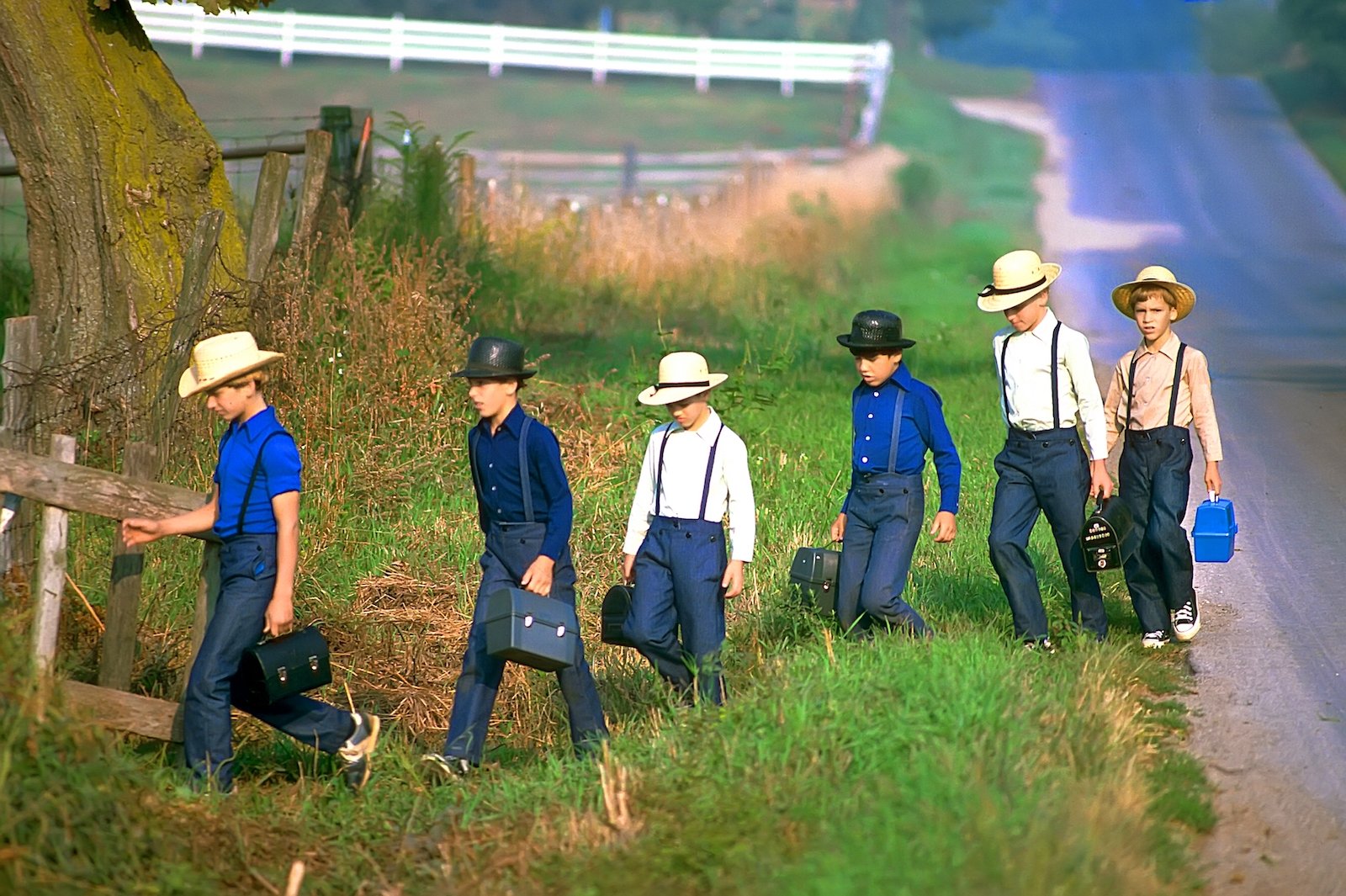
Amish clothing is simple and modest, but they purchase fabrics and sometimes even ready-made clothes from regular stores. The key is that their clothes adhere to specific styles and colors dictated by their community. These styles symbolize their religious beliefs and commitment to simplicity. Men typically wear dark-colored suits and broad-brimmed hats, while women wear long dresses with aprons and head coverings, often sewn at home or by local tailors.
Amish Don’t Use Modern Medicine

The Amish prefer natural remedies but will use modern medicine when necessary. They see doctors, visit hospitals, and use medications, especially in emergencies or for serious conditions. While they might rely on traditional remedies for minor ailments, they do not hesitate to seek professional medical care when needed. Many Amish communities have established relationships with local healthcare providers to ensure they receive proper medical attention.
Amish Don’t Own Cars
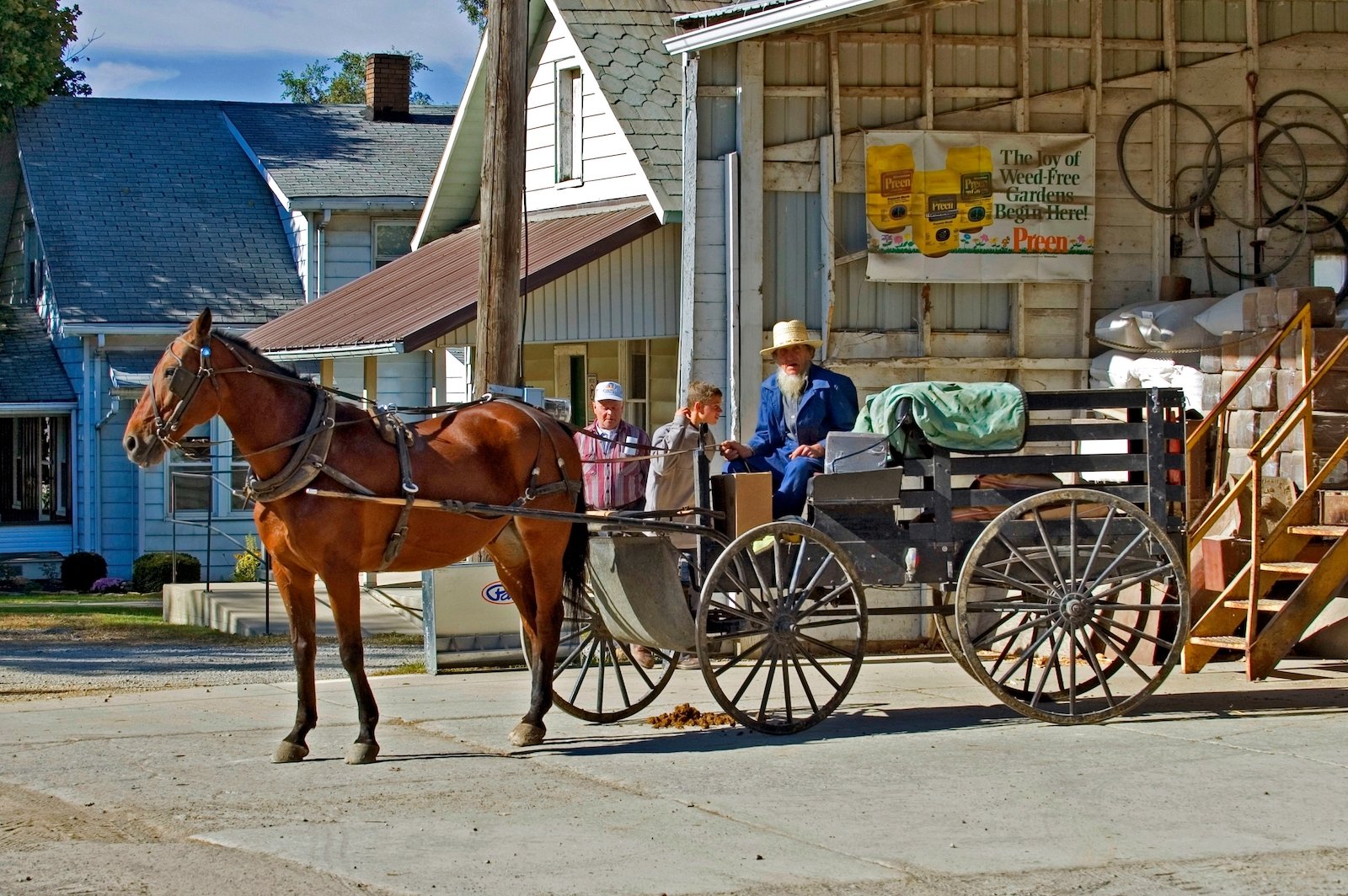
The Amish generally avoid owning cars to maintain their community-centric lifestyle. However, they do use cars driven by non-Amish for essential travel, such as medical emergencies or business trips. They often hire drivers, referred to as “Amish taxis,” for longer trips or when they need to transport goods that cannot be carried by horse and buggy. This practice allows them to maintain their traditions while addressing practical needs.
All Amish Marriages Are Arranged
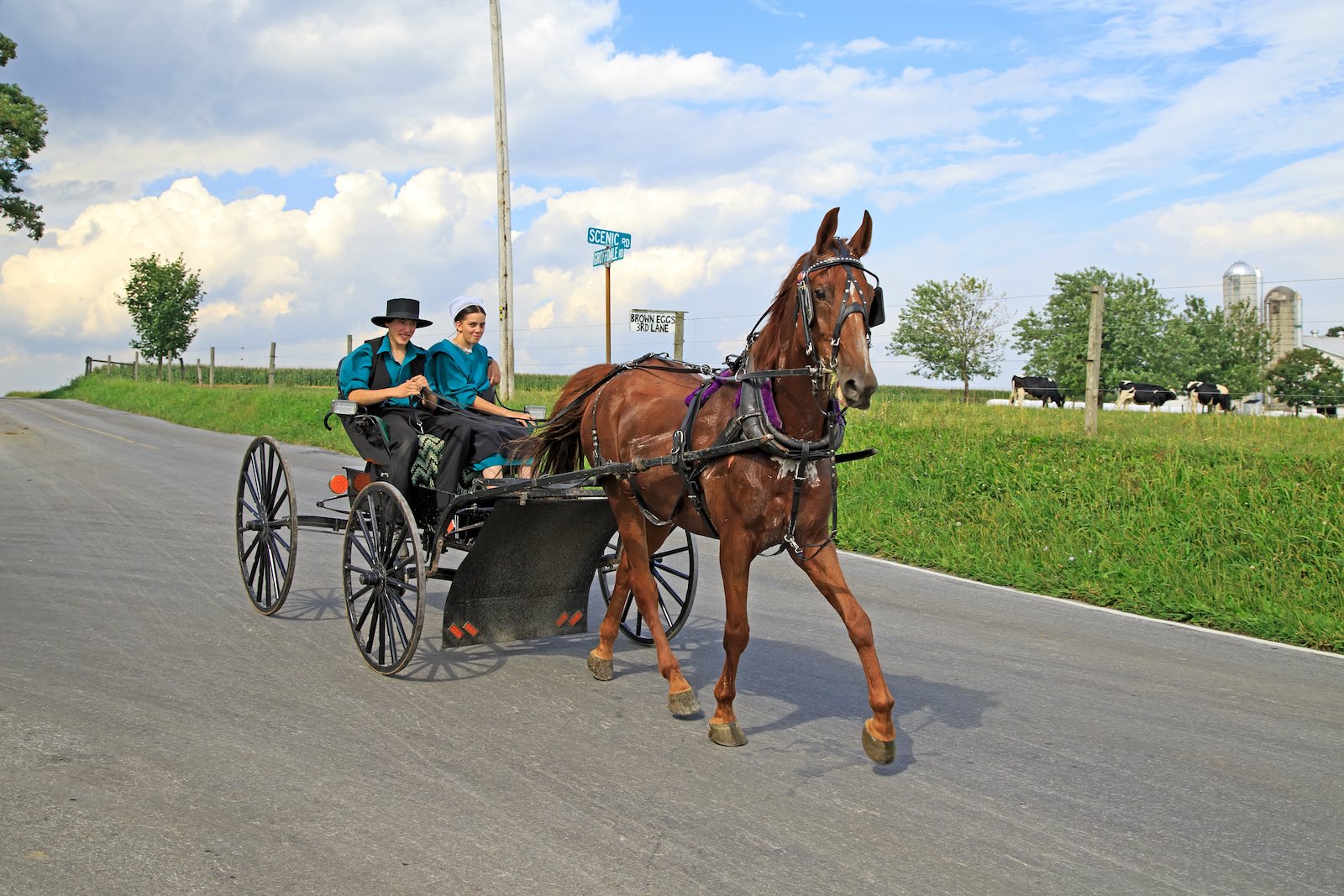
Amish marriages are based on mutual choice, although influenced by community and family. Courtship is a private matter, and while parents’ opinions matter, young people choose their own spouses. Dating often begins during social gatherings, and couples get to know each other through group activities and church events. Once they decide to marry, their engagement and wedding are significant community events, but the choice to marry remains personal and consensual.
Amish Don’t Enjoy Modern Entertainment

Amish life focuses on community and family activities. While they avoid TV and radio, they enjoy activities like board games, sports, and music (often played on non-electric instruments). Social gatherings, such as barn raisings, quilting bees, and church services, provide ample entertainment and community bonding. These activities strengthen their communal ties and offer enjoyable pastimes that align with their values of simplicity and togetherness.
Amish Are Poor
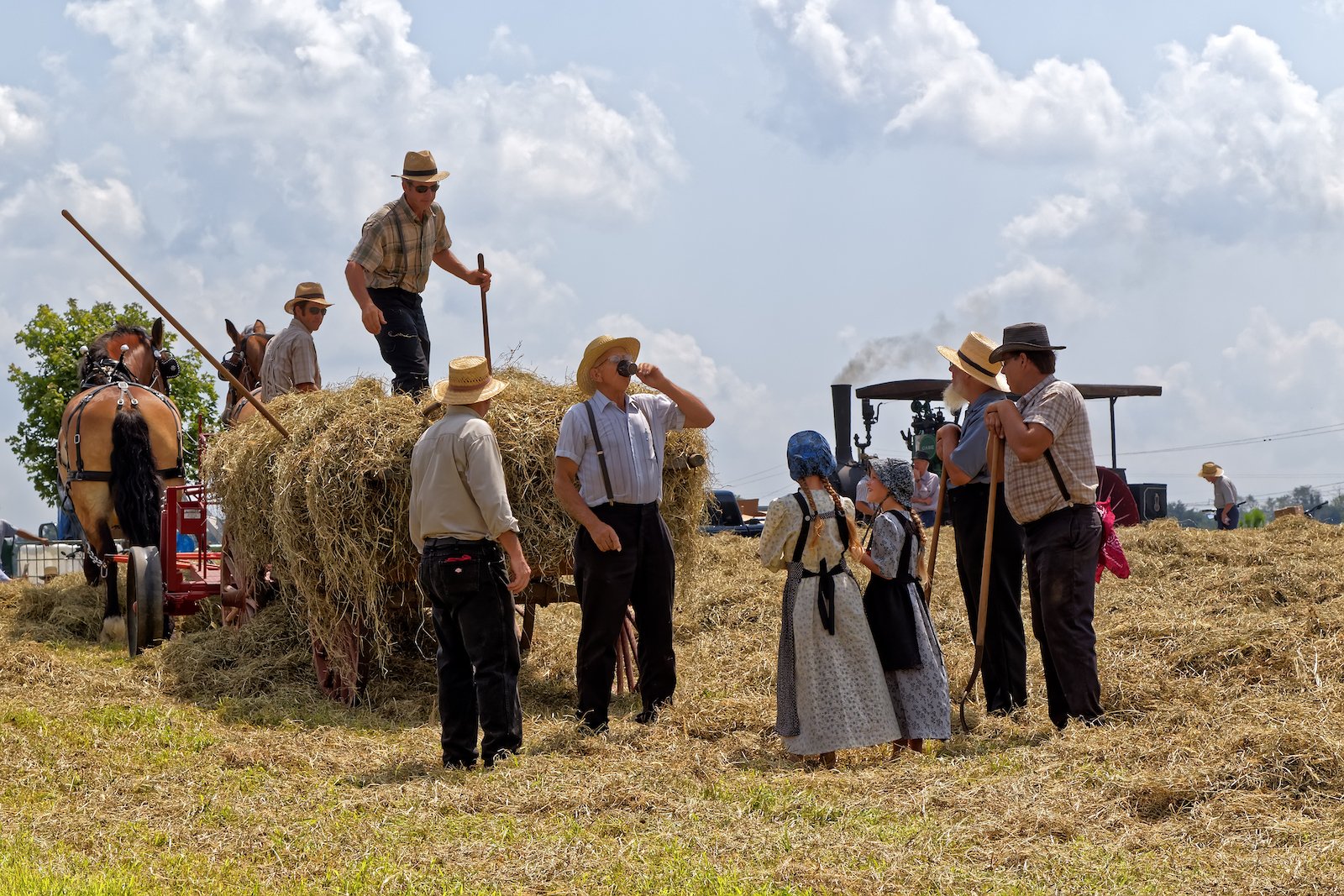
The idea that the Amish are poor is a common misconception. While their lifestyle may appear simple and austere, it does not equate to poverty. In reality, many Amish communities are financially stable and even prosperous. Amish wealth is often measured in assets rather than cash. They invest heavily in land, livestock, and equipment. Farmland is a significant asset, and owning it outright can be a considerable source of wealth.
Amish Do Not Celebrate Christmas

Amish communities do celebrate Christmas, along with a unique tradition called Second Christmas. Their celebrations might differ from what many are used to, but they still observe major holidays like Thanksgiving, Easter, and New Year’s. The Amish enjoy these special days with their own customs and values, making their holiday celebrations an important part of their culture. Additionally, they often focus on family gatherings and religious activities during these times.


